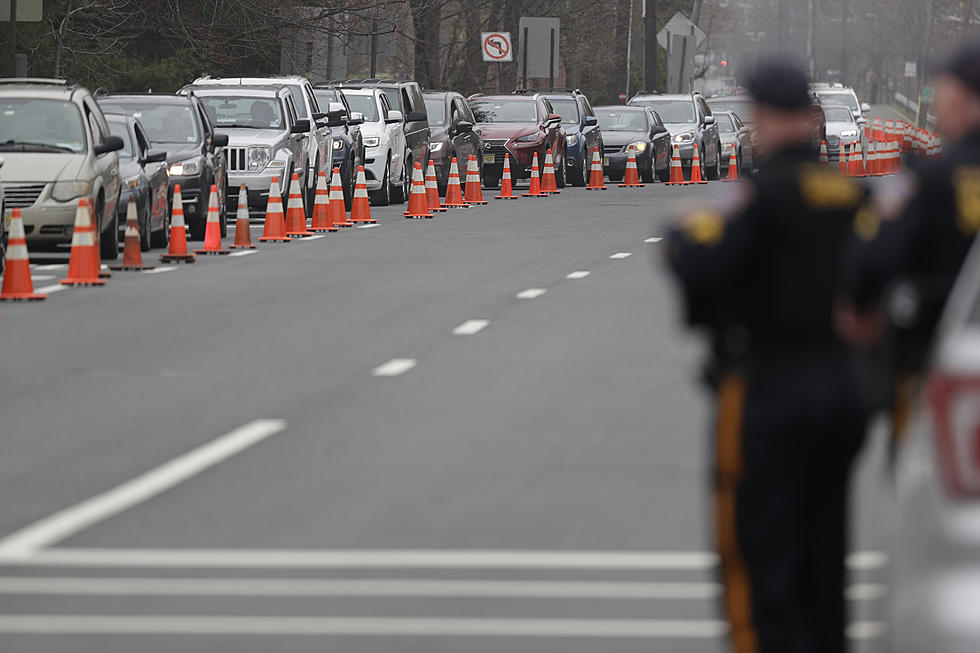
Over by Easter? Murphy says ‘we have to stay the course’ despite Trump optimism
President Donald Trump on Tuesday said he wants the country "opened up and just raring to go by Easter." But health officials are not as optimistic, saying much of the nation will still be in the throes of the coronavirus pandemic in two weeks.
Gov. Phil Murphy on Tuesday said "I hope he's right" but added that it would be his call — not Trump's — to make in the state of New Jersey.
"The pain may be high in terms of our lifestyle and on our economy, I can't relent. We're going to have to stay the course no matter what," Murphy said in an interview with CNN's Chris Cuomo.
As the daily number of novel coronavirus cases and the resulting death total continues to spike higher every day, the departure from normalcy and our new "stay in your house" reality has become exhausting and debilitating for many New Jersey residents.
The ongoing message from Murphy and health officials has been that the infection rate is expected to shoot much higher — and the best weapon we have to slow the spread and infection rate of COVID-19 is social distancing.
Dr. Ed Lifshitz, the director of communicable disease services for the state Department of Health, said another important point to keep in mind is the effects of the efforts being made today are not immediately apparent because the virus may take more than a week to percolate before a person shows any symptoms.
“What we’re seeing now in these numbers are not what’s happening now. It’s what was happening about 10 days ago. So we’re really too soon to know exactly what we can expect to see with the response we’ve already taken," he said Tuesday.
“We really have to wait and see. We have to see the data coming in, we have to see what’s happening with the hospitals, we have to see whether they’re getting overwhelmed.”
Murphy said it’s important to remember that New Jersey only went to “the most aggressive social distancing posture" on Saturday, making interpreting any data right now difficult or impossible.
“We need a longer runway to get a handle on this," he said. “We know that it takes up to two weeks for people to show signs of the illness, so new cases today could still mean new cases two weeks from now.”
On Cuomo's program, the Democratic governor shied away from criticizing the president, which he often had done before the crisis, and pointed out that federal officials are helping set up four field hospitals and sending much-needed personal protective equipment to hospitals.
But he also said the state is basing its decisions on "on data, science, facts."
"We'll stand tall and we'll try to reason based on the facts. But my fear, based on the meetings we're having constantly, is that we are not going to be out of the woods by then."
During his daily news conference earlier in the day, Murphy said all laboratories doing testing are now required to submit data on negative as well as positive results, which will help health officials to get a better sense of how the virus is spreading in the Garden State and when it will start to trend downward.
He said a reason why the number of people with COVID-19 in New Jersey is spiking is because we are dramatically increasing the number of tests being performed, so this trend should not be alarming.
“We get it: We understand your anxiety, we understand what it’s like being cooped up at home, but we need you to continue to stay at home," he pleaded.
State Health Commissioner Judy Persichilli pointed out “we’ve seen in other countries such as China and South Korea that taking aggressive actions can flatten the curve and decrease the number of new cases.”
She said so far in New Jersey, more than 12,000 novel coronavirus tests have been performed and 27% of those people, about 3,600, have tested positive.
Sergio Bichao contributed to this report.
You can contact reporter David Matthau at David.Matthau@townsquaremedia.com
Newark's quiet in the coronavirus crisis
More From 105.7 The Hawk










